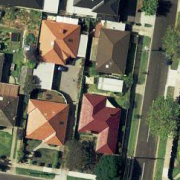Putting a floor under a solar trade war
The European Union, United States and China are most likely to resolve a multi-billion dollar trade dispute over solar power equipment by agreeing on a floor price for Chinese products.
The EU's executive Commission and the United States Department of Commerce have said that China is selling solar panels and components at far below fair market values and pushing European and US companies into insolvency. Chinese sales to both regions exceeded $30 billion in 2011.
They say the alleged dumping is a result of massive Chinese over-capacity, which is a result of a government-supported investment boom.
The first evidence emerged last week that trilateral talks were proceeding, at least informally.
Duties
The United States announced at the end of last year that it would impose anti-dumping and anti-subsidy (or countervailing) duties on Chinese solar modules and cells.
The European Commission is one step behind with the introduction last week of provisional anti-dumping duties on Chinese modules, cells and wafers, and the rate will rise dramatically from August 6.
The Commission is also due to decide on provisional countervailing duties by August 5. These provisional duties are collected only if tariffs are subsequently made definitive and can be back-dated by three months.
EU member states will have to make a definitive decision on both types of tariffs by December 5. If EU countries support definitive tariffs, they would then be implemented for up to five years.
But their likely decision is unclear. Most EU member states, led by Britain and Germany, currently oppose the tariffs, trade diplomats said, due to fears of Chinese reprisals.
Price impact
The price impact of duties will be considerable.
The average wholesale price for Chinese solar panels is around $0.70 per watt, as reported by module makers.
The United States has imposed final anti-dumping tariffs of around 30 per cent on major producers and countervailing tariffs of around 15 per cent.
The EU has applied an average provisional anti-dumping tariff from August of 47.6 per cent.
The implication is that Chinese imports will be nearly half as expensive again, effectively returning prices to 2011 levels. Average module prices charged by top Chinese producers fell 46 per cent last year, manufacturer data show.
Solar panels account for less than half the full installed cost of projects, implying that the overall cost for those who use Chinese panels could rise by nearly a quarter.
Mitigation
There are several ways to mitigate higher prices.
Installers can absorb some of the extra cost, sacrificing their profit margins to maintain demand, and can obtain solar panels from other exporters or from expanded domestic production.
Chinese exporters may avoid US duties through a convoluted outsourcing of part of the supply chain, called a tolling arrangement. The exporter makes solar wafers in China, then pays a producer in another country to make these into solar cells, which it ships back into China for final assembly into solar panels for export.
"Modules, laminates, and panels produced in China from cells produced in a third-country are not covered by these investigations," the US Department of Commerce said last October.
The EU duties have a wider scope, applying to all imports of solar modules, cells and wafers from China, with no reference to such third-country exceptions.
Floor price
A more long-term solution is a negotiated settlement.
Talks have started, informally at least, according to Mike Froman, a White House international economic affairs adviser who spoke at a Senate hearing on his nomination to be US trade representative.
"There have been some initial discussions with both the European market and China about how to deal with this on a global basis," he said on June 6.
The European Commission, when it kicked off anti-dumping tariffs on June 4, referred to the possibility of agreeing on a minimum price for Chinese imports.
"The Commission has indicated it is open to discuss with China other measures which would be equivalent to the 47.6 per cent duty ... an agreement not to sell below a minimum price." ("Memo: EU imposes provisional anti-dumping duties on Chinese solar panels", European Commission, June 2013)
Under such an undertaking, exporters would agree to raise prices until they had wiped out the impact of dumping.
That is a formal procedure under the World Trade Organisation, which defines it as an "undertaking by an exporter to raise the export price of the product to avoid the possibility of an anti-dumping duty".
Under EU law, the Commission can accept such offers and terminate an anti-dumping tariff once member states are happy that it ends injury to domestic producers.
The Commission has already defined injury as gross returns of less than 10 per cent of revenues.
"When calculating the amount of duty necessary to remove the effects of the injurious dumping, it was considered that any measures should allow the Union industry to cover its costs of production and to obtain a profit before tax. ("Commission Regulation of June 4 2013 imposing a provisional anti-dumping duty")
"It is thus considered that a profit margin of 10 per cent of turnover ... could be regarded as an appropriate minimum."
Such language seems to provide enough room for negotiation to avoid a costly trade dispute. And given the parlous financial state of some Chinese solar equipment manufacturers, the prospect of being able to sell at higher prices may not be a bad idea.
-- Reuters
















